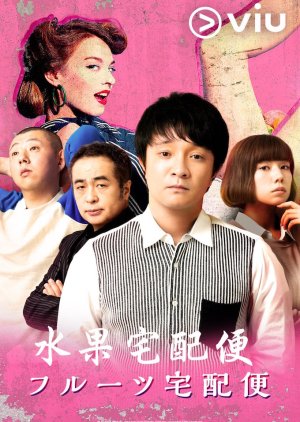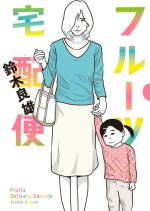 JDorama 2019 in Review: A look back on Winter, Spring and Summer of 2019
JDorama 2019 in Review: A look back on Winter, Spring and Summer of 2019 After the company SAKITA had been working at has gone out of business, he returns to his hometown in a regional city for a second start as the head of a call-girl business, "Fruits Delivery Service." This drama tells the tale of a group of women who, being poor and faced with a variety of life situations, have no alternative but to work at that service. It is a work that calls into question how to deal with distortions in society. Edit Translation
- English
- Français
- magyar / magyar nyelv
- dansk
- Native Title: フルーツ宅配便
- Also Known As: Fruits Delivery Service
- Screenwriter: Nemoto Nonji
- Director: Shiraishi Kazuya, Okita Shuichi
- Genres: Business, Life, Drama
Cast & Credits
- Hamada Gaku Main Role
- Naka RiisaMotohashi EmiSupport Role
- Maeno TomoyaOda TetsuroSupport Role
- Matsuo SuzukiMisujiSupport Role
- Arakawa YoshiyoshiMasakaneSupport Role
- Hara FukikoMizukoSupport Role
Reviews

The agency is presented as a quirky and mildly dysfunctional little family that works pretty diligently to keep the business going and the girls safe. The characters at the office are reasonably likable and the actors do a decent job with the material they are given. The story of the day-to-day operations of the agency seems to be a reasonably sober and accurate if slightly gritty depiction of this side of the sex industry in Japan. There is a bit of humor that does land throughout the series, and rather more banjo in the soundtrack than one might expect.
The show is fairly sex-positive but the tone of the production is definitely not approving of the call-girl business in general. Nor is there any fan service here: the women and what they do with their clients is presented in a matter-of-fact manner, and while several gorgeous actresses are part of the cast, they are not presented for the male gaze even in scenes with their clients.
The failure of the series is inherent in its set-up: the show is about Sakita coming to terms with his new job. The arc of the series centers on his repeated failures to be a white knight for the woman at his agency. And so while two of the women he works with are almost certainly raped (trigger warnings for episodes 3 and 12), two of them are kidnapped, and one is physically abused at a rival agency the story only focuses on how those incidents affect him. I think we're supposed to be cheering the fact that Sakita genuinely cares for the women he works with but the series itself really does not.
Was this review helpful to you?
Recommendations
There have been no recommendations submitted. Be the first and add one.












































